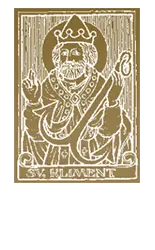Sunday Readings : Luke 12. 49-56; Psalm 82; Hebrews 11. 29-12.2
Sermon preached on: – The Ninth Sunday after Trinity 14.08.2022
Prayer:-
The Gospel reading from Luke this morning is perhaps the most troubling among all of the troubling sayings of Jesus, it seems, as they describe a Jesus we never knew. “I came to bring fire to the earth”, “I have not come to bring peace, but a sword” said Jesus. “I have come to divide mother against daughter, and father against son.” With all of the divisiveness present in our world these days, it seems like the last thing we need is a Gospel text that seemingly encourages more division.
The Gospel this morning indeed offers a test for preachers & teachers — really for any Bible readers. What will we do with it? If a preacher were looking for trouble in a preaching text, this one has plenty. Not a very cheerful passage, is it?
Remember that Jesus and his disciples were on their final journey to Jerusalem. As Jesus moved closer and closer to his destination – his death – a sense of urgency must have been rising in him. There was so much his disciples still did not understand about the Kingdom that He had been born to rule. They were still looking for a Messiah who would be a military champion, someone to bring down Rome in a great show of armed strength. They were looking for a king who would restore the throne of David. They were not looking for a King reigning on the throne of heaven, or a king who would be a servant, or one who would be tortured and executed… not that kind of king at all.
I guess it must have been very frustrating for Jesus. Here he had been teaching with stories and parables about the way the Kingdom of God worked, and they still didn’t get it. Once in a while, there would be a glimmer of understanding, but it would quickly fade, as the disciples who knew Jesus best kept trying to put him into the box of their own expectations. And, so do we sometimes.
Jesus, who only recently was rebuking James and John for wanting to bring down fire on those Samaritans who had not welcomed them (Luke 9.54), He suddenly declares that he cannot wait to bring down fire himself. (Can’t you just hear James and John complaining, “How come you get to when we don’t?)”
When Jesus speaks of bringing “fire to the earth,” I suggest you avoid connecting it to images of destruction or catastrophe (as in 2 Peter 3:10, 12) and images of hell-fire or retribution (as in Mark 9:48; 2 Thessalonians 1:7-8). Luke has already told us, through John the Baptist, that Jesus is coming with a fire of purification and refinement (Luke 3:16-17; also Malachi 3:1-3).
There is a difference between cleansing fire and the fire that consumes. Remember Moses and the burning bush, ‘the bush was burning, yet it was not consumed’ (Exodus 3.2). James and John were eager to destroy, but Jesus is talking about a cleansing, purifying fire.
Fire, Baptism, Division
The fire Jesus wants to kindle is a fire of change, a fire of transformation, the fire of God’s active presence in the world. No wonder Jesus is so eager to strike the match.
Jesus yearns for “the kingdom of God” to break forth into the world in all its fullness. We may ask if Jesus is so eager, why can’t He do it all alone? But we need to remember God is not a harsh judge to overrule the free will of humans but a loving Father who wants our cooperation to bring about His Kingdom.
Transformations and justice are the things that Jesus wants. That means that oppression has to go. Greed has to go. Idolatry has to go. The same with exploitation, dehumanization, narcissism, and any other evils you can name that prevent the flourishing of all people and all creation. Those contagions are rendered powerless in the presence of God.
Fire also connotes God’s presence (Exodus 14:24; 19:18; Isaiah 30:27), and therefore it represents the power of God to effect change in the face of daunting resistance (Jeremiah 23:29) as well as the power to overwhelm God’s enemies (2 Kings 1:2-14). No wonder fire becomes symbolic also of judgement, because judgement is another way of speaking about how unrighteousness, idolatry, and injustice cannot exist in God’s presence.
Jesus reveals some of his intense desire here — desire for the world’s well-being on the basis of truth.
Because, the world’s well-being doesn’t just spring into existence because everyone wants it. First, the truth must be told. That’s why Jesus said in John 8.32 “Then you will know the truth, and the truth will set you free.” what’s the truth- God’s word- the Bible and His living Word- Jesus because embodies the truth. “I am the way and the truth and the life” says Jesus (Jn.14.6). Fire is, after all, about refining. And refining hurts, especially for those of us who have a lot of impurities still sticking to us.
Interestingly, the other image which Jesus talks about for purification here, is of water. To be baptised is literally to be dipped in water. But, more broadly it means to be washed clean, to be purified. Baptism also is used to represent both judgement and purification.
Jesus refers, however, not to the baptism he brings but to the one he receives. In this context, the baptism of which Jesus speaks seems clearly to be an allusion to his cross. Strikingly, the One who embodies the presence of God is not simply meting out the fire of judgement and purification, but bears it also himself.
Because we mistake those impurities for purity, and because we lie to ourselves that self-protection is a form of justice, we resist Jesus. Therefore he also speaks of the division His message brings (12:50-53).
How can Jesus then say that he has come to bring division and conflict?
I believe that the answer is to be found not so vividly in the 21st century, but in the earliest years of the Church; when Christianity was a radically new religion, people were despised for following Jesus. If a Jew converted to Christianity, his family had a funeral for him, and he was disowned. If a person claimed to be a disciple of Jesus, he was considered an enemy, and a bounty was placed on his head. Till the 4th century C.E., Christianity was considered a “religio illicita”, an illegal religion, and today’s Epistle reading brings an insight of what the early Christians were made to face: they were stoned to death, they were sawn in two, they were killed by the sword; they went about in the skins of sheep and goats – destitute, persecuted, tormented – of whom the world was not worthy (verse 37).
On a spiritual level the division is, because the satanic life in the unbelievers is struggling against the divine life, a conflict between the kingdom of Satan and the kingdom of God. This sounds a bit dramatic but this is the reality. Although Satan was defeated on the cross of Calvary but he is still active in the world through his schemes. ‘Let us not be ignorant of his devices’ says St. Paul (2 Cor. 2.11).
In the 2nd chapter of Luke’s Gospel, it is clear that the peace that Christ brings to the earth does not imply an absence of conflict. The peace that Christ brings is a different sort of peace, about which Mary was warned that her Son “is destined for the falling and the rising of many in Israel, and to be a sign that will be opposed” (Luke 2.34). Today’s Gospel reading does not contradict “the message of Jesus’ birth, ‘peace to all’, but gives it proper context”.
The division of which Jesus speaks, is a result of the power of purification and the judgement he bears. The kingdom of God he proclaims represents a new order. Jesus sees the division the Gospel brings as starting “from now on.” You can certainly see this working out in Jesus’ life – it was the acute division that he brought that led to his execution by the religious and civil authorities. That is therefore a serious division.
The Kingdom of God is being inaugurated, and Jesus is both its herald and its inauguration. Jesus not only inaugurates it but He also embodies it. The harsh sayings and indictments resounding in today’s Gospel remind us that Jesus has not come to validate the social realities and values we have constructed. Such social realities and values often end up favouring those who hold positions of power at the expense of those who are powerless. The radical purposes of God have completely demolished the status quo. Jesus shatters it with his mission of compassion, mercy, and justice. Staking our claim with Jesus will inevitably separate us from those who deny his Lordship. Coming alongside Jesus in his mission will most certainly divide us from those who fear giving up their positions of power in order to bring peace and justice to others. God’s divine plan for peace is not always welcome.
You see, the troubling sayings of Jesus are only troubling because they call us to live by our convictions; literally to walk the talk. We are called to trust the Lord and follow our master even in situations of turmoil in our home, our home country and workplace. In every situation of darkness and distress, opposition and division, know that God will bring you across from the midst of the waters like the people of Israel. If we follow him alone, like Rahab the prostitute, we will be saved. He will shut the mouths of lions or quench raging fire – and He will favour us.
May God grant us the courage to follow Him, and bring the peace that comes from His son Jesus Christ, ‘the Prince of Peace’.
In the name of God, who is Father, Son and Holy Spirit. Amen


